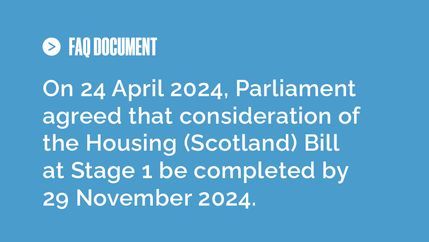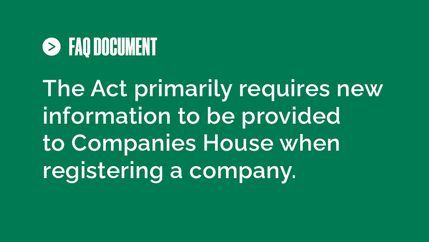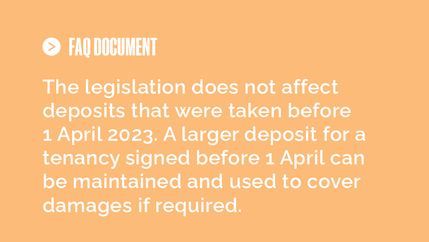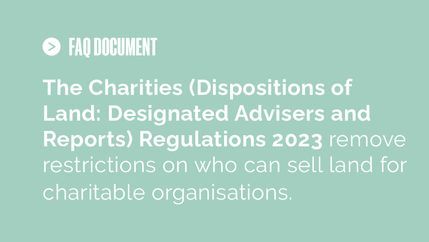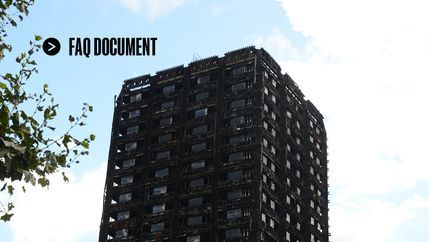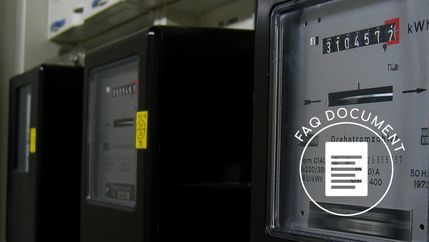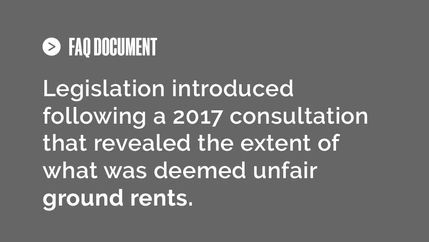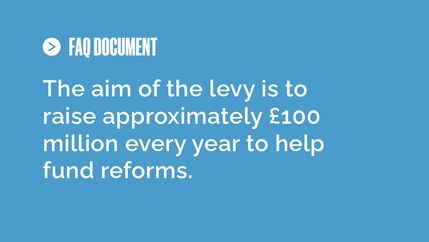FAQ: Digital Markets, Competition and Consumers Act 2024 (Commencement No. 2) Regulations 2025
The Digital Markets, Competition and Consumers Act (DMCC Act) was enacted on 24 May 2024 and provides regulation of competition in digital markets, amending the Competition Act 1998 and the Enterprise Act 2002 and encompassing the protection of consumer rights and other related rights.
FAQs: Housing (Scotland) Bill
On 26 March 2024, the Scottish Government published the Housing (Scotland) Bill. The Bill is a significant piece of legislation that will have implications for letting agents and their landlords. Here we answer some of the most frequent questions about the proposals contained in the Bill.
FAQs: Renters’ Rights Act
The Act reforms rental laws in England. It includes protections for tenants against unfair rent increases, clearer grounds for eviction, and the introduction of a landlord’s ombudsman service. It addresses rental discrimination, the right to keep pets, and enforces the Decent Homes Standard.
FAQs: Leasehold and Freehold Reform Act 2024
One in five properties in England (4.98 million) and one in six in Wales (235,000) are leasehold. The Leasehold and Freehold Reform Act 2024 follows the Leasehold Reform (Ground Rent) Act 2022 and makes a number of changes which will affect long term homeownership for leaseholds and homeowners on managed estates.
FAQs: Economic Crime and Corporate Transparency Act 2023
The Economic Crime (Transparency and Enforcement) Act was introduced through emergency powers, and the Economic Crime and Corporate Transparency Act 2023 represents a long-term commitment to addressing economic crime in the UK to increase transparency in the ownership and operation of UK businesses.
FAQs: Private Tenancies Act (Northern Ireland) 2022
Sections 1-6 of the Private Tenancies Act (Northern Ireland) 2022 were enacted on 1 April 2023. This FAQ document provides answers to the most common questions that we have received from Propertymark members.
FAQs: Charities Act 2022
The Charities (Dispositions of Land: Designated Advisers and Reports) Regulations 2023 remove restrictions on who can sell land for charitable organisations. Our FAQ includes minor additional changes introduced by The Charities Act 2022 (Commencement No. 3, Consequential, Saving and Transitional Provisions) Regulations 2024.
FAQs: Renting Homes (Wales) Act 2016
From 1 December 2022, existing tenancy agreements are automatically converted to either a fixed term or periodic standard occupation contract. Propertymark has liaised with the Welsh Government in response to concerns and questions from members.
FAQs: Fire Safety (England) Regulations 2022
Following the implementation of the Fire Safety Act 2021, additional measures have been passed for England that introduces new responsibilities under the Fire Safety Order and expand upon the Regulatory Reform (Fire Safety) Order 2005.
FAQs: Non-domestic private rented property: minimum energy efficiency standards for commercial property
Since 1 April 2018 all new tenancies of non-domestic (commercial), properties must reach the minimum Energy Performance Certificate (EPC) standard of E or above. The Energy Efficiency (Private Rented Property) (England and Wales) Regulations 2015 make clear that as of 1 April 2023, the regulations will apply to all tenancies, including existing and ongoing tenancies.
FAQs: Client Accounting Service Providers
Letting agents who manage properties which yield an income of 10,000 Euros or more a month (or equivalent amount in each Member State) have to comply with anti-money laundering regulations. Despite how the Regulations specifically only affect a small portion of properties, many banks refused to allow letting agents to open new pooled client accounts.
FAQs: Economic Crime (Transparency and Enforcement) Act 2022
This Act is part of a series of proposed powers to combat illicit finance and reduce economic crime. While the Act is necessary to impose sanctions as part of a wider set of actions the UK has taken against Russia, measures set out in the Act aim to tackle economic crime from all overseas entities.
FAQs: Leasehold Reform (Ground Rent) Act 2022
The Leasehold Reform (Ground Rent) Act 2022 restricts ground rents on newly created long residential leases for single dwellings such as a flat or house to a token one peppercorn per year, effectively restricting ground rents to zero financial value.
FAQs: Economic Crime Levy (UK)
The levy was announced at Budget 2020 and the Economic Crime (Anti-Money Laundering) Levy Regulations 2022 were published on 11 March 2022. The Regulations came into force on 1 April 2022.
FAQs: Homes for Ukraine
On 14 March 2022, the UK Government announced that UK individuals, charities, community groups and businesses can record their interest in supporting Ukrainians fleeing the war through the UK Government’s new Homes for Ukraine scheme.
Right to Rent FAQs
We have worked with the Home Office and UK Border Agency to answer the questions that are widely asked by landlords and letting agents regarding Right to Rent.


